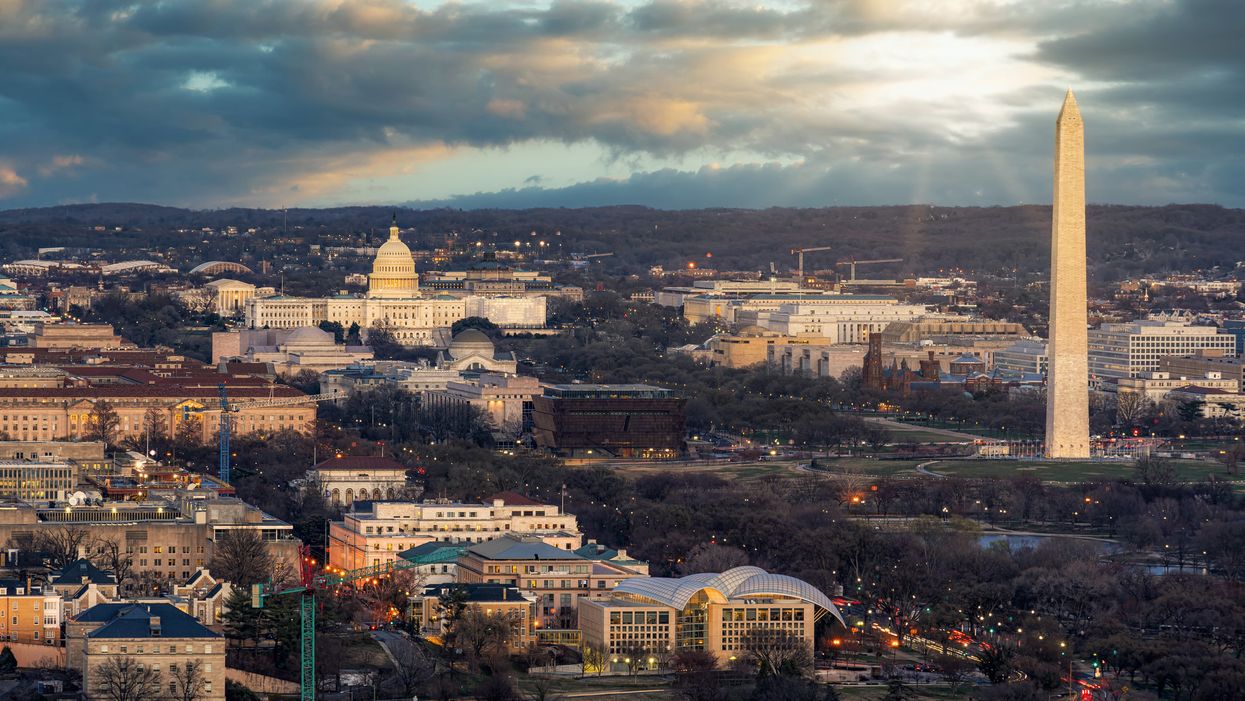The House has voted for the first time to rectify one of the most counterintuitive quirks of American democracy:
People living in the national capital have less of a voice in the national government than all the rest of the nation — consigned to the same second-class status, taxation without representation, which sparked the Revolution that created the country.
Legislation to change that, by making the District of Columbia the 51st state, was approved 232-180 on Friday, the only passage of such a statehood measure by either chamber in the history of Congress.
But the almost purely party-line tally in the Democratic House will be the proposal's symbolically resonant high-water mark, at least for the year. That's because the Republican Senate had made plain it has zero interest in the measure, even before President Trump made explicit this week that he would veto it.
As a result, once they became confident of passage by the House, many proponents started focusing their attention on the coming election — working to raise money and organize not only for former Vice President Joe Biden, who has endorsed the bill, but also for his fellow Democrats in close Senate contests.
A Biden presidency combined with a still-blue House and newly Democratic Senate, especially one willing to drop the 60-vote filibuster test for legislation, could propel the measure into law next year.
"The ample resources of D.C. residents — both human and material — should be devoted to races most likely to elect or reelect women and men who believe residents of the District deserve the right to full participation in American democracy," columnist Colbert I. King wrote this week in the Washington Post.
Partisan politics have neutralized the drive for statehood for decades, but Democrats believe they may be able to capitalize over time on the antagonism the president and administration officials have shown the city during the coronavirus pandemic and the protests over police brutality and racial injustice.
The legislation would create "Washington, Douglass Commonwealth" (an homage to the abolitionist Frederick Douglass), guaranteeing the new state would be treated the same as the existing 50 with respect to federal aid and spending formulas — and its people could elect two senators and one representative.
Now home to more than 706,000, the city is more populous than Wyoming or Vermont. Rapid growth and gentrification, spurred mainly by the arrival of high-tech and other industries that thrive off federal contracts, has diversified the population and made it more prosperous than ever. District residents now pay more federal income tax per capita than the residents of any state, and D.C. provides more tax revenue to the federal government than 22 other states.
The population nonetheless remains almost three-fifths Black and Latino, a bigger majority than any state, a demographic fact that has made statehood part of the agenda of many civil rights groups.
The D.C. electorate is such a deep blue — the last seven GOP presidential nominees have averaged 8 percent of the vote — that it would be guaranteed to elect a pair of Democratic senators and make a fully-enfranchised House member out of the non-voting Democratic delegate.
"We stand out as the only democracy in the world that denies democracy to the people of its national capital, and it's long past time to change that," Eleanor Holmes Norton, who's had that job for three decades, said in concluding the debate for her bill, which got the designation HR 51.
Partisan lopsidedness has assured solid Republican opposition to statehood. But GOP members also say the new state would have an unfair sway over the federal government, that D.C. officials are not prepared for the extra responsibilities of statehood and that the measure would deny Congress its constitutional power over the nation's capital.
To address that, the bill would shrink the seat of the federal government to the two square miles that take in the Capitol, White House, Supreme Court and bulk of the city's federal buildings.
Statehood was supported by 86 percent of D.C. residents in a 2016 referendum. Three years earlier the city started signaling its displeasure with the status quo — which includes Congress having the power to veto local ordinances — by making "Taxation Without Representation" the logo on its license plates.
The campaign gained new urgency this spring because of how the city was affected by the coronavirus pandemic and the civil unrest.
Although the District had one of the highest infection rates early on, and the economic consequences of its sustained shutdown were severe, it received $750 million less than the smallest state under the pandemic recovery package enacted in March.
And then last month, without the city's consent or collaboration, Trump deployed federal law enforcement officers and National Guard troops across the city to repress protests after George Floyd's death in police custody.
"Statehood fixes it all," Mayor Muriel Bowser declared when the House announced debate on the bill.
The measure does not make clear who would pay the costs of becoming a state, however. The federal government, for example, might no longer feel obligated to provide more than $1 billion annually to fund Medicaid and much of the city's criminal justice system.
The last House vote on statehood was 27 years ago, when the municipal government was in a fiscal and ethical shambles. The bill got just 153 votes.




















Trump & Hegseth gave Mark Kelly a huge 2028 gift